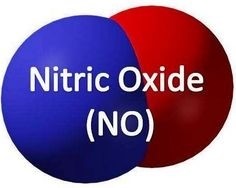Didem Miraloglu, MD, MS

| Nitric oxide (NO) is a remarkable molecule that plays a crucial role in various physiological processes within the human body. Discovered in the late 18th century, and its importance has been extensively studied and recognized in the fields of medicine, biology, and biochemistry. In fact in 1998 Nobel Prize in Physiology or Medicine was awarded to Robert Furchgott, LouisIgnarro, and Ferid Murad, for their discoveries of NO as a signal molecule in the vasculature and specifically in the control of blood pressure. NO is a unique signaling molecule that influences numerous cellular pathways, contributing to cardiovascular health, immune function, neurotransmission, and even cellular defense against pathogens. The synthesis of nitric oxide is achieved through the enzymatic action of nitric oxide synthase (NOS) on L-arginine, a semi-essential amino acid found in the body. There are three isoforms of NOS: endothelial NOS(eNOS), neuronal NOS (nNOS), and inducible NOS (iNOS). Each isoform is expressed in specific tissues and cells and responds to different stimuli. eNOSis predominantly present in endothelial cells, contributing to vasodilation and regulating blood flow. nNOS is found in neurons and plays a role in neuro transmission, while iNOS is induced in response to inflammation or immune challenges. The regulation of nitric oxide production is a tightly controlled process. Various factors, including calcium ions, cofactors like tetrahydrobiopterin, and the availability of L-arginine, affect NOS activity. This precise control ensures that NO is produced when needed, preventing excessive generation and potential cellular damage. Nitric oxide is a key player in cardiovascular health. It acts as a vasodilator, relaxing the smooth muscles in blood vessel walls, which leads to increased blood flow and improved oxygen and nutrient delivery to tissues. Dysfunction in the NO pathway is associated with numerous cardiovascular diseases, including hypertension, atherosclerosis, and heart failure. Pharmaceutical agents that enhance NO production or mimic its actions, such as nitroglycerin and sildenafil (Viagra), have become essential treatments for these conditions. The immune system relies on nitric oxide to fight off pathogens and defend against infections. When activated by cytokines and other immune molecules, iNOS produces NO in macrophages and other immune cells. Nitric oxide acts as a potent antimicrobial agent by damaging bacterial DNA, proteins, and lipids. Furthermore, it helps regulate the immune response and plays a role in resolving inflammation after an infection has been controlled. In the nervous system, nitric oxide is a critical neurotransmitter involved in various processes, such as learning and memory, synaptic plasticity, and neuronal communication. It modulates the release of neurotransmitters like dopamine, serotonin, and glutamate, contributing to mood regulation and cognition. Moreover, NO has been linked to neuroprotection by its ability to act as an antioxidant and counteract oxidative stress-induced damage. Neurodegenerative diseases, such as Alzheimer’s and Parkinson’s, involve oxidative stress, and researchers are exploring the potential of NO-based therapies to mitigate neuronal damage. Due to its diverse roles in numerous physiological processes, nitric oxide has garnered significant interest as a potential therapeutic agent. Researchers are exploring its use in various medical applications, including wound healing, erectile dysfunction, and respiratory disorders like pulmonary hypertension. Additionally, NO-based therapies are being investigated in the context of cancer treatment, where NO has shown potential to inhibit tumor growth and sensitize cancer cells to radiation and chemotherapy. Nitric oxide, once regarded merely as an air pollutant, has emerged as a fundamental molecule essential for life and well-being. Its roles in cardiovascular health, immune function, neurotransmission, and neuroprotection highlight its significance in maintaining the body’s delicate balance. As our understanding of this remarkable molecule deepens, we are likely to witness further advancements in medical therapies that harness the potential of nitric oxide for improving human health and well-being. To schedule a new patient appointment, please call our office at 919-999-0831. Your Partner In Health, Didem Miraloglu, MD, MS |
 |







